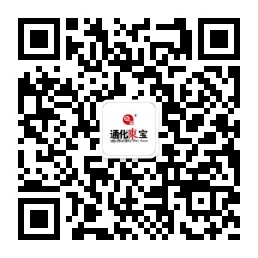Contact:
4008465777
Tonghua Dongbao announces NMPA acceptance of its NDA application for Etoricoxib Tablets
Recently, Tonghua Dongbao Pharmaceutical Co., Ltd. ("Tonghua Dongbao" or the "Company") received the notice of acceptance (No. CYHS2302352, CYHS2302353, and CYHS2302354) from the National Medical Products Administration (NMPA) on the NDA application for Etoricoxib Tablets.
Etoricoxib Tablets is an oral chemical drug for gout/hyperuricemia treatment. If approved, this drug will strengthen the Company's gout portfolio, expanding treatment options for patients, together with two other Class 1 novel drugs in development. According to the Research Progress on Etoricoxib, Etoricoxib Tablets boast enhanced efficacy and reduced potential for adverse reactions when used in combination with other drugs, which is its primary advantage over similar medications.
About Etoricoxib Tablets
Etoricoxib Tablets are a selective COX-2 inhibitor and a new-generation non-steroidal drug, offering anti-inflammatory, pain-relief, and fever-reducing benefits. With fewer gastrointestinal side effects than traditional drugs and no sulfa group, it is safer for patients allergic to sulfonamides. Etoricoxib, developed by Merck Sharp & Dohme, was first approved in Mexico in September 2001. Now available in 84 countries, it is the top-prescribed anti-inflammatory painkiller in Europe.
In May 2007, NMPA approved etoricoxib, making it the only non-steroidal anti-inflammatory drug in China specifically for gout. The Guideline for rational medication of gout recommends colchicine or non-steroidal anti-inflammatory drugs as the first-line treatment for acute gouty arthritis.
According to data from Menet.com, the sales of Etoricoxib Tablets in Chinese public medical institutions and urban brick-and-mortar pharmacies totaled RMB 366 million in 2022. The sales in urban pharmacies have seen a rapid increase in recent years, with a growth of 18.33% compared to 2021.
About gout and hyperuricemia
In recent years, the prevalence of gout and hyperuricemia has obviously increased in China, especially among young people, exposing the vast unmet medical needs in this field. According to the Chinese Guidelines for the Treatment of Hyperuricemia and Gout (2019), the overall prevalence of hyperuricemia and gout in China is 13.3% and 1.1%, respectively. Gout has become the second most common metabolic disease after diabetes. A Frost & Sullivan analysis reveals that the number of people in China with gout and hyperuricemia will continue to increase, respectively reaching 52.2 million and 240 million in 2030, and the Chinese gout drug market is expected to grow to RMB 10.8 billion.










